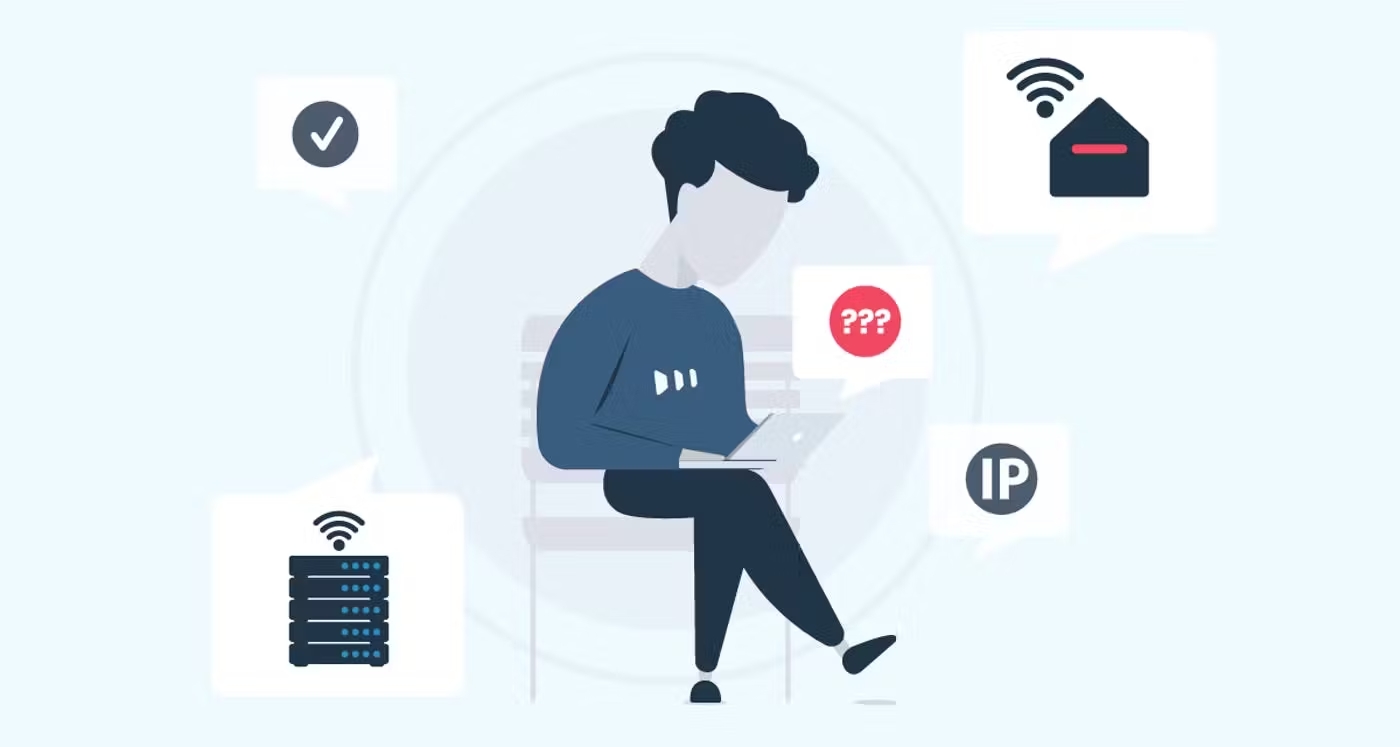Choosing the right proxy service is not always an easy task. Proxies come in various forms and packages and can be categorized in many ways. If you are relatively new to using proxy infrastructure, trying to figure out which type is right for the task at hand can give you a headache.
To make the choice easier, let us dive into one of the most important distinctions in the proxy world. The distinction is between residential and datacenter proxies. Here we will cover datacenter vs. residential proxies and how one might choose one over the other.
Quick overview of proxies in general
To see the difference between residential vs. datacenter proxies more clearly, firstly let’s quickly look at proxies in general and how they are used.
A proxy server is any server that positions itself between the client device and the end server. Thus, when using a proxy service and connecting to the internet your traffic first goes to the proxy server and only then to the website. The same only in backward order happens when the website sends its response.
Proxies are used for many purposes both in business and by private individuals. Home users usually utilize proxy servers to unblock restricted content and for general online anonymity.
Meanwhile, businesses make use of proxies when gathering data, testing tools, and for various brand protection initiatives.
Residential and datacenter proxies are two of the most important proxy IP types and categorizations. It is time to look closer at each.
What are datacenter proxies?
Datacenter proxies are proxy IP pools based in large data centers all over the world. These IPs are not affiliated with any Internet Service Provider (ISP) and are not associated with any real device.
End servers on which websites are hosted can identify whether the IP address is issued by a particular ISP. Thus, they know that datacenter proxies are not real devices connecting. This might be an issue if the website bans all proxy activity.
Why would a website do it? Since proxies might be used for malicious purposes such as overloading the server’s security systems, website hosts might distrust proxy activity. Especially if they have experienced such an attack before.
However, proxies are used for many legitimate purposes, thus complete proxy bans are rare. Therefore using a datacenter proxy will not automatically get you banned. And, as we will see below, datacenter proxies have their advantages.
What are residential proxies?
Unlike datacenter proxies, residential proxies are associated with actual web browsing devices based in residential addresses. Thus, using this type of proxy service makes the client device indistinguishable from a real user browsing the internet from that address.
As data centers can host thousands if not millions more IP addresses than residential homes, residential proxies are not as common and harder to obtain. However, an established provider will be able to grant access to an extensive network of residential IPs.
Datacenter vs. residential proxies: A comparison.
The main difference between residential and datacenter proxies, as we have seen, is in where their IP addresses are hosted. From this distinction stem many technical and practical differences. Here is what you, as a proxy user, should know.
- Datacenter proxies are more affordable. As residential proxies are not as common, naturally, they cost more.
- Residential proxies are less likely to be banned. Since a client device using a residential IP is indistinguishable from an organic user, they are less likely to be banned or have reputation problems.
- Datacenter proxies are faster. Data centers have powerful servers that are capable of moving your traffic faster.
- Residential proxies are often more exclusive. Although both residential and datacenter proxies can be private, datacenter proxies generally deal with more connections.
Generally speaking, if it’s undetectability and exclusivity you are after, what you need is a residential proxy IP. If you need speed and want to cut costs, go for datacenter proxies. However, the requirements of a specific case might suggest otherwise than this simple assessment.
When to use residential and datacenter proxies?
In most cases where proxies are needed, both residential and datacenter proxies can do the job. Thus, unless there are specific conditions that disqualify one or another, you can rely on either type of proxy.
There are however some considerations that might help choose one or the other. Here are a few examples of how you can approach choosing a proxy for the task at hand.
- For large-scale data extraction, you might prefer datacenter proxies. They are fast and affordable, thus might help cut costs of long-term web scraping projects. Unless you expect that datacenter IPs might be blacklisted by websites you want to scrape.
- Having a residential IP is better when you are shopping online, for example, copping sneakers. Online shops selling high-demand items will likely be prepared for users utilizing bots and proxies to buy quantities above quotas.
- Datacenter proxies are fine for general online anonymity. If you simply want more privacy online, a datacenter proxy will hide your IP just as well and for a smaller price.
- Residential IP addresses might be better for social media automation. As social media platforms generally ban bot usage, they might suspect it when you are using a datacenter IP address.
- When you need to access geo-restricted content, different considerations can apply. A private user trying to unblock a streaming service might need a residential IP if the service automatically detects datacenter proxies. On the other hand, companies that need access to lots of different location-based content might prefer datacenter proxies due to their speed and availability.
Thus, when choosing a proxy, the nature of the task and its particular conditions can guide your decision. A good practice in this case is to consider what types of websites are to be accessed and whether there is any reason to believe that they blacklist proxies.
When there is no such reason, faster and more affordable datacenter proxies are often the optimal choice. Of course, when in doubt, you can always consult a reputable proxy provider.



